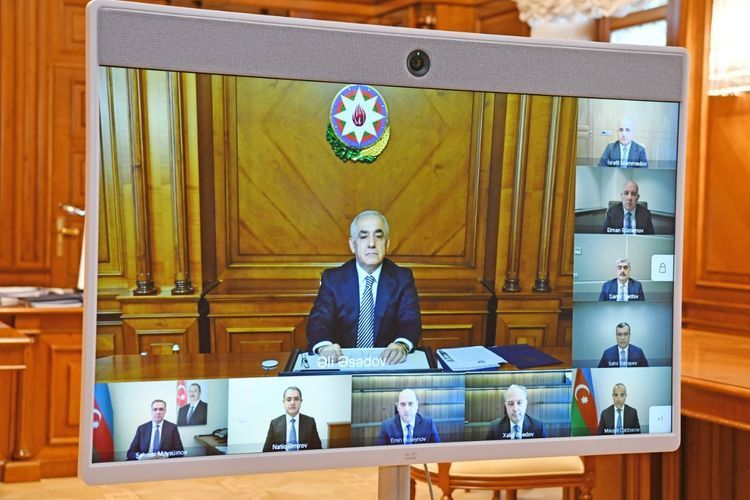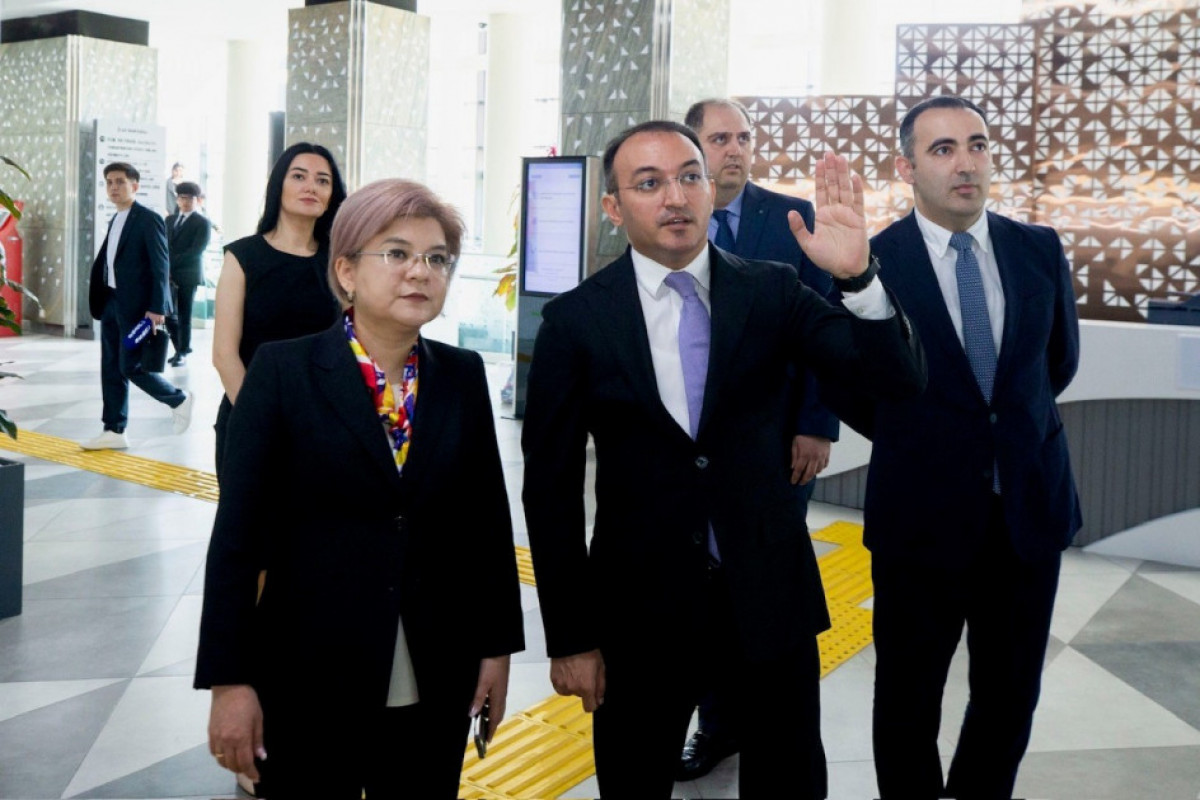Today, under the chairmanship of Prime Minister Ali Asadov, the first meeting of the Economic Council, created by the decree of the President of the Republic of Azerbaijan, was held, the Cabinet of Ministers told APA.
The meeting was attended by members of the Council - assistants to the President of the Republic of Azerbaijan Shahmar Movsumov and Natig Amirov, assistants to the First Vice President of the Republic of Azerbaijan Emin Huseynov and Khalid Ahadov, Minister of Economy Mikail Jabbarov, Minister of Finance Samir Sharifov, Minister of Labor and social protection of the Population Sahil Babayev, Chairman of the Central Bank Elman Rustamov, executive director of the State Oil Fund Israfil Mammadov.
Prime Minister Ali Asadov, on behalf of the members of the Economic Council, expressed gratitude to President Ilham Aliyev for his high confidence.
He noted that the Economic Council, as a new platform, is a favorable institution for collegial discussion of the most difficult tasks for the world and national economy in a difficult period in order to come to a common denominator. The Economic Council has all the organizational, economic, and financial capabilities to fulfill the tasks set by the presidential decree.
He noted that on the instructions of the President, the Economic Council should prepare a program on the framework of economic policy. In parallel with state investments, attracting private local and foreign investment should become the main direction of the economic policy of the new period, the leading role of the private sector should be ensured, serious and radical steps should be taken to improve the investment climate.
In order to ensure an adequate response to the strategic challenges facing the national economic development, Mr. President set new tasks for us.
* protection of macroeconomic and financial stability;
* formation of new mechanisms for increasing the annual rates of economic growth;
* creating more sustainable and inclusive sources of economic growth;
* attracting private investment, including foreign direct;
* determination of national development priorities based on the expansion of non-oil exports;
* radical improvement of the investment climate;
* strengthening the international competitiveness of the country's economy;
* increasing the level of socio-economic well-being
* and other strategic objectives.






